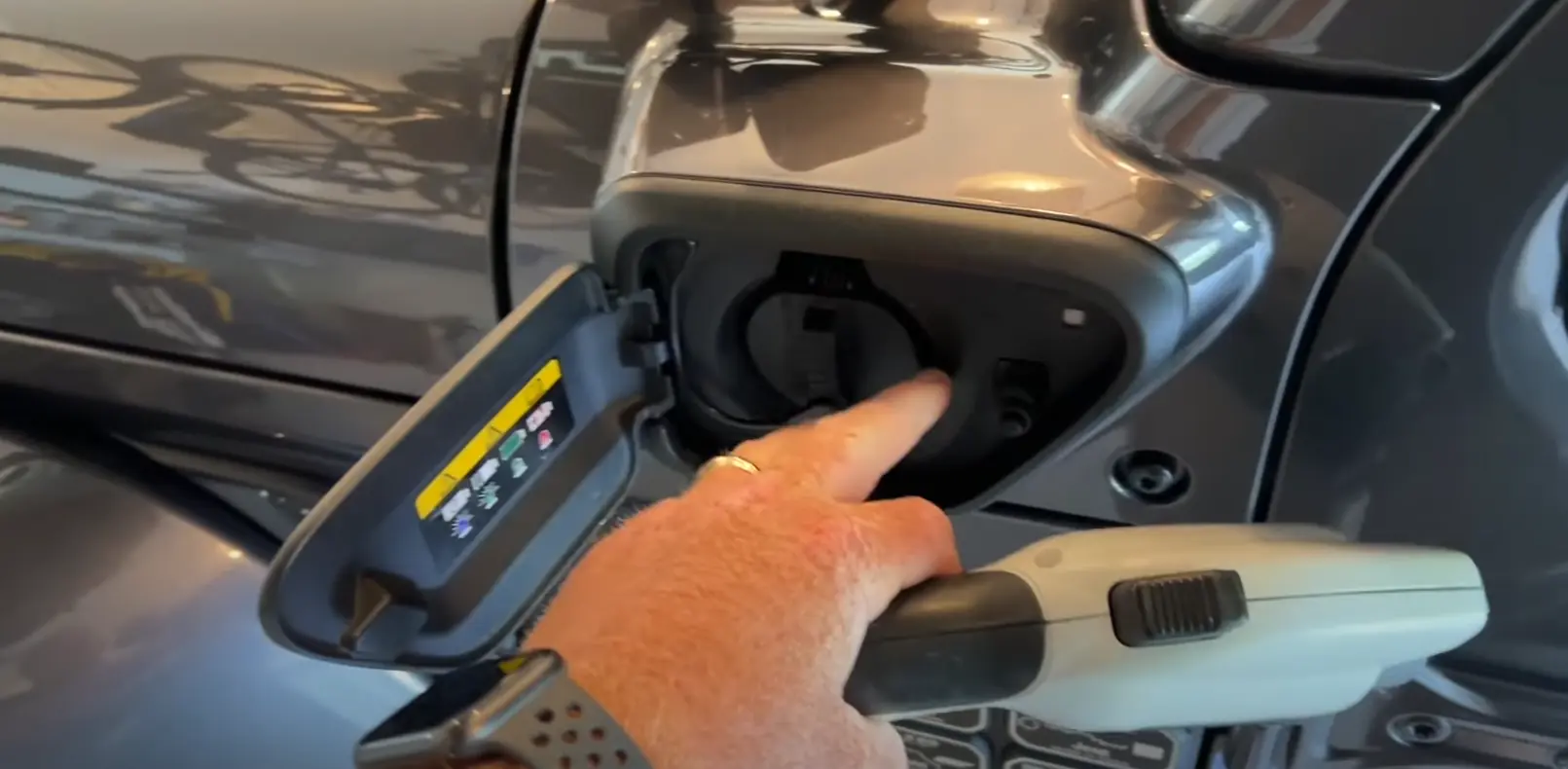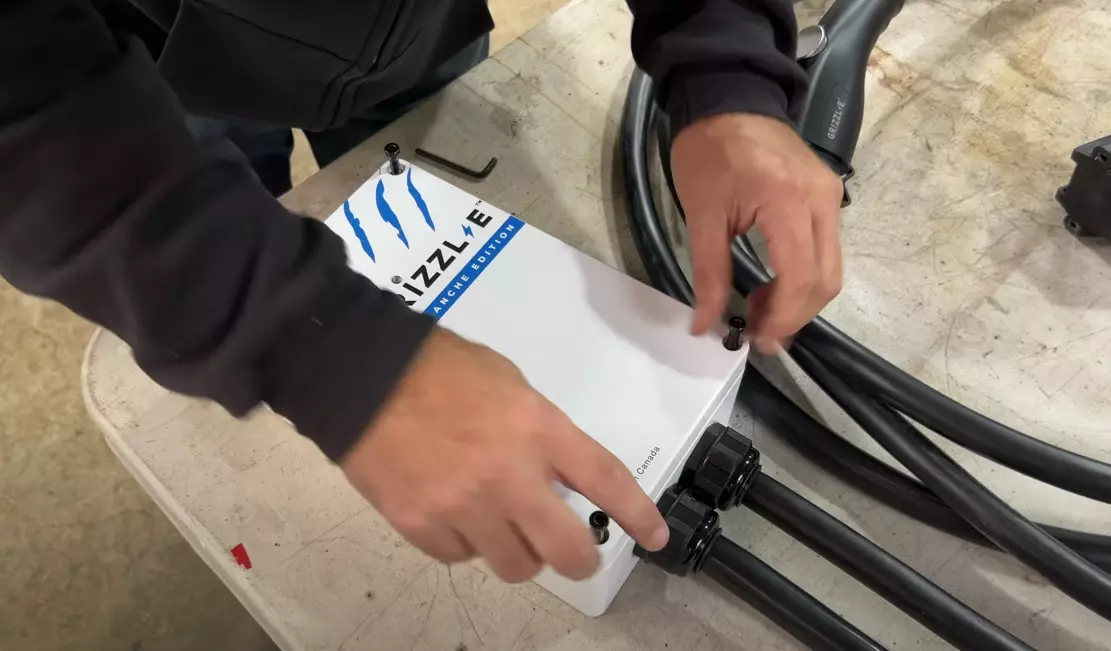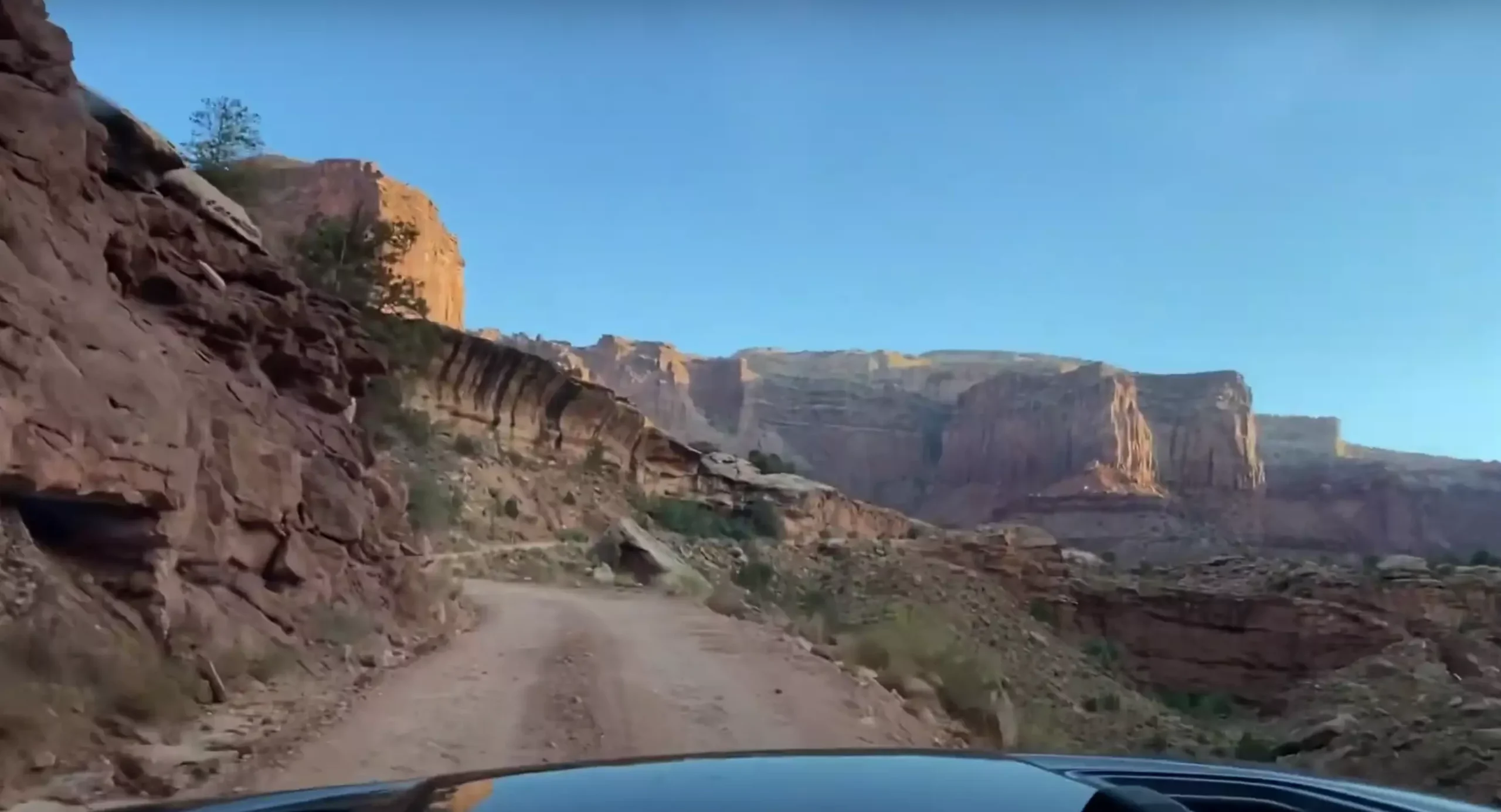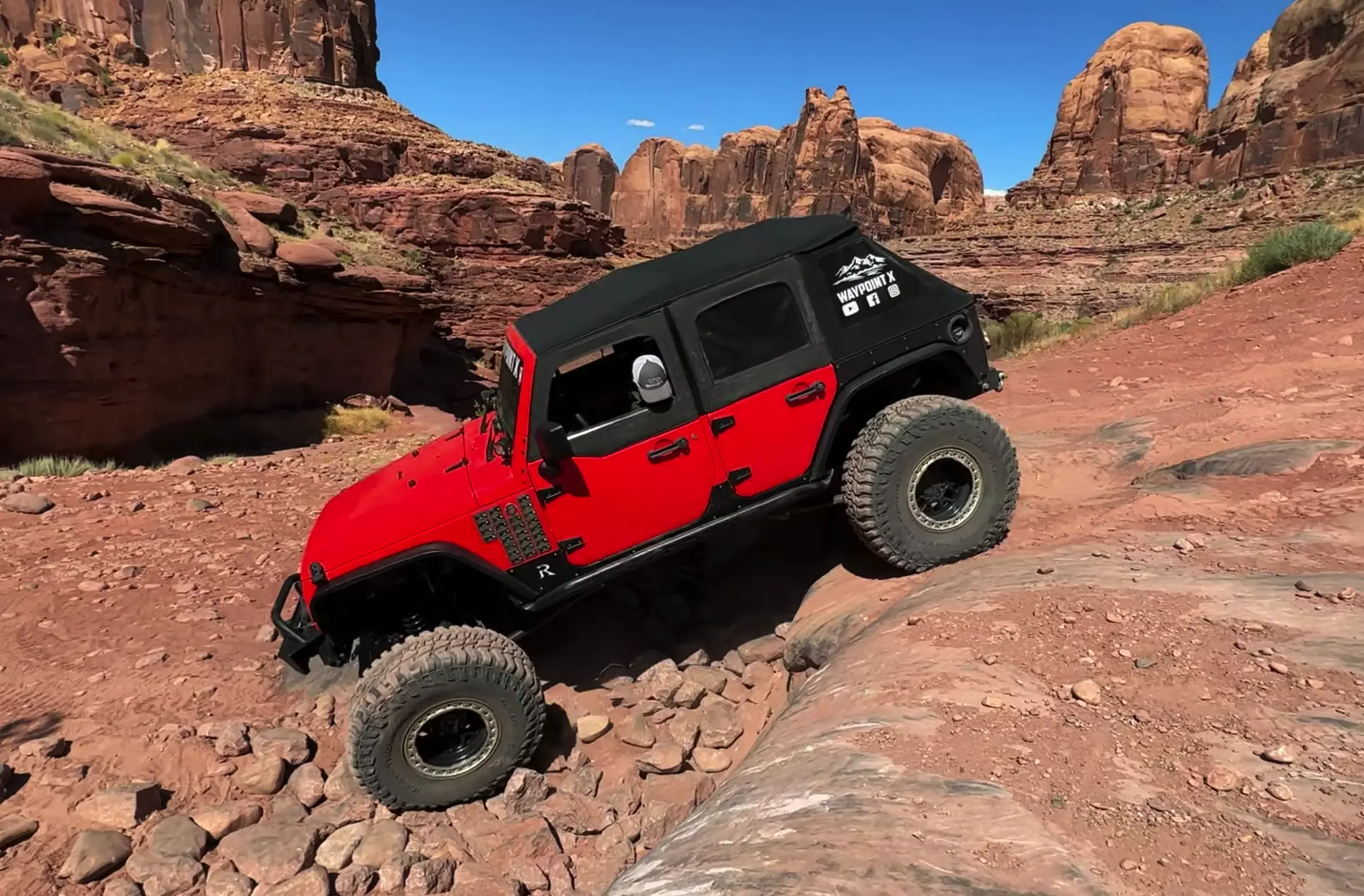
Jeep Wrangler vibration at highway speeds is caused by wear and tear of mechanical parts or loose parts of your Jeep. Vibration at highway speeds is common in high mileage Jeeps and Customized Jeeps which account for more than 80% of the cases reported.
If your Jeep is vibrating at highway speeds, there are chances you have a problem with your Jeeps suspension system, that’s why customized Jeeps with custom suspension systems are more prone to vibration at highway speed compared to stock Jeeps.
We have compiled the following list of potential Jeep suspension system issues that can cause your Jeep Wrangler to vibrate at highway speed mainly at 55-60 miles.

What Causes Jeep Wrangler Vibration at Highway Speeds?
There are several potential reasons related to a Jeep Wrangler suspension system that could make your Jeep vibrate at highway speeds, most of them are related to wear and tear, loose parts or parts installed not based on the manufacturer’s specifications.
So where should you start when troubleshooting the cause of your Jeep Vibrating?
Uneven Tire Wear on Your Jeep Wrangler.
If your Jeep tires are not straight and are at an angle, your tires will tend to have uneven wear due to the contact patch of your tires to the road being uneven, the main cause of uneven tire wear are alignment problems, over or underinflating your tires, worn out bushing, and worn-out shocks or struts.
Inflate your Jeep Tires with only the best portable air compressors for a Jeep Wrangler.
We recommend rotating your Jeep tires after every 5,000 to 7,500 miles, rotating your Jeeps tires will allow them to age gracefully and even wear all five tires of your Jeep. Depending on how frequently you off-road, Jeepers normally inflate or deflate their Jeep tires to increase Jeeps traction on different terrains, this can cause your Jeep Wrangler tires to wear out much quicker and you will experience the vibration of your Jeep at high speeds. You should check your tire treads for signs of uneven wear if you deflate or inflate your Jeep tires more frequently.
Jeep’s Infamous ‘Death Wobble‘ Might Be the Problem
Jeep death wobble is common in Jeeps, and affects both new and high mileage Jeeps, the main cause of Jeeps death wobble is the front suspension system, the front suspension system parts to troubleshoot includes the ball joints, Tie rods, wheel bearings, track bar bushing and mounts, and finally the control arm of your Jeep.
If you suspect your Jeep has a death wobble, read our Jeep Death Wobble Post and learn in detail what causes Jeep death wobble, how to fix it, and the costs involved in repair and diagnostics.
Jeep death wobble is a scary thing, that causes your Jeep to violently shake side by side of the Jeep front end steering components and the steering wheel. Jeep death wobble will cause Jeep wrangler vibration at highway speeds after hitting a bump or other road imperfections at high speeds.
Jeep Wrangler Wheel Bearing Symptoms
Your Wheel bearings condition may be also causing your Jeep to vibrate at highway speeds, there are several symptoms you will investigate including, a rumbling or humming noise that increases with acceleration, and excessive play of your Jeeps steering.
On customized Jeeps with bigger and beefier wheels and tires, stiff shocks and suspension springs will cause your Jeeps wheel bearing to wear out faster. Aftermarket suspensions are the main culprit to your wheel bearing wearing out faster than normal, you should regularly inspect your wheel bearings if you have upgraded shocks and springs.
Jeeps meant for off-roading are also prone to bad wheel bearings compared to city driving Jeeps, this is because water, dust, mud, and sand can cause your wheel bearings to fail, contaminants often get past the seals over time and pollute the grease and wearing away your wheel bearings.
Jeep Wrangler Wheel Alignments Issues
Alignment of your Jeep involves the steering wheel alignment and tire alignment. Tire alignments are recommended after every 5,000 to 10,000 miles, this is because over time your Jeep wheels may become misaligned due to modifications done on your suspensions, wear and tear of your suspension parts, accidents, and impacts your Jeep faces off-road and on-road.
Wheel alignment is important to your Jeep and might affect your Jeep handling and performance, When your Jeep has wheel alignment issues, you will notice vibrations at highway speeds, followed by left or right pulling even when your Jeeps steering is straight, some other symptoms of wheel alignments include uneven wear of your tires.
Jeep Wrangler U-Joint Symptoms
If your Jeep Wrangler starts vibrating after shifting gears at highway speeds, your problem might be a bad U-joint. U-Joint problems are most common on automatic Jeep Wranglers, the vibration caused by U-joint failure is not the same as those caused by the Jeep Wobble. U-joint failure causes vibration and noises on the driveshaft, while the Jeep death wobble is experienced on the steering and front suspension system.
On a solid front axle Jeep Wrangler, your will have several u joints, they are located in the front drive shaft, rear drive shaft, and one on each axle shaft. U Joints has four attachments that let your Jeeps driveshaft move lateral and side to side.
The reason why your Jeep Wrangler is vibrating due to U joint failure is that over time the wearing of your Jeep’s U-Joints will cause an abnormal rotation path of your driveshaft, causing an imbalance that can cause your Jeep to vibrate especially when you are accelerating at speed.
Owners of Jeeps who have experienced both u-joint and wheel alignment issues have stated that bad u-joints can cause a higher vibration than misaligned wheels, and the reason why this is so, is because your driveshaft rotates 3-4 times faster than your Wheels and even faster on beefier wheels and tires we install on our Jeeps.
You should inspect visually if the rubbers’ boots are still intact, and the cups are not pushing out, you can also shake the u-joints and look for play, we also recommend you look for grease leaks and dust accumulation on the u-joints.
It’s hard to visually inspect and look for a play on the axle shaft u-joint because you can’t stick your hands to reach the axle shaft u-joints, however, we recommend listening for clicking sounds at low speeds, you can also jerk each wheel at a time and spin your tire and look for play delay on the u-joint and axle. You can also turn your wheels and check if the wheels will jam if you try to turn them.
Jeep Wrangler Engine Failure.
Engine Lubrication Problems can also cause your Jeep to vibrate at highway speeds, if your oil is aged and becomes thick and contaminated with metal flakes and other elements, they can cause lubrication problems of your engine parts that can cause your Jeeps engine to vibrate or shake.
Evidently, the performance of your Jeeps engine depends on the sort of oil you utilized. Following an oil change, you’d probably face a number of engine issues if you used the incorrect oil for your Jeeps engine.
Your Jeep Wrangler might start shaking immediately after an oil change or In worst case scenarios you might also have worn out the gasket and O rings of your Jeeps engine, which can cause a leak of oil to the spark plugs, the oil leak, and failure of gasket and o rings might be due to failing piston and valve guides.
What happens if your Jeep Spark Plus is contaminated with oil, the engine might misfire, have a poor fuel economy, increase oil consumption and you will also notice blue smoke from your exhaust.
If the engine failure is due to oil leaks in the spark plugs, you should visually inspect for oil deposits on the spark plugs, and immediately contact a mechanic for them to further diagnose the engine, and they should be able to tell you if the Jeep was shaking to the oil leaks in the engine.
Jeep Wrangler Low Transmission Fluid
If you have low transmission fluid, your Jeep won’t be able to generate much hydraulic pressure leading to gear slippage, this is a common issue on an automatic transmission that can cause shaking of your Jeep at high speed.
Jeep gear slippage normally means you have an expensive issue to repair, to tell if you have gear slippage due to low transmission fluids, you should check your RPMs on the tachometer and the speedometer together, when pushing the gas pedal your tachometer should increase as your speedometer increases if you have a gear slippage the speedometer is increasing while the tachometer is not going to increase as quickly as the speedometer and your car will tend to rev.
If your Jeep’s transmission fluid is low, you will experience shaking as you accelerate at highway speeds, if there is a leak in the transmission and you continue driving your Jeep, the leak can cause permanent damage to your Jeep’s transmission.
When you have gear slippage your Jeep will tend to jerk and shake at highway speeds when the Jeep is shifting gears, you should inspect your transmission fluid levels, and change your transmission oil if it’s aged. If the problem continues further inspection of the gears, clutches and other severe issues should follow.

About the Author: James Ndungu
James Ndungu is a seasoned automotive professional with a deep passion for Jeeps. With 40 years of experience in owning, testing, and reviewing various Jeep models, James has gained extensive first-hand knowledge and expertise. He shares his insights, tips, and advice through his engaging writing, helping fellow Jeep enthusiasts navigate the exciting world of Jeeps.






